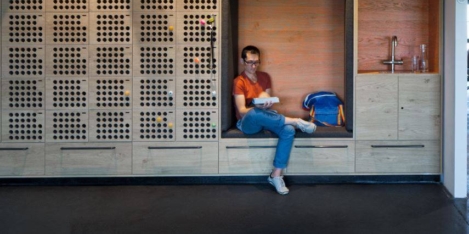To provide the best experiences, we use technologies like cookies to store and/or access device information. Consenting to these technologies will allow us to process data such as browsing behaviour or unique IDs on this site. Not consenting or withdrawing consent, may adversely affect certain features and functions.
The technical storage or access is strictly necessary for the legitimate purpose of enabling the use of a specific service explicitly requested by the subscriber or user, or for the sole purpose of carrying out the transmission of a communication over an electronic communications network.
The technical storage or access is necessary for the legitimate purpose of storing preferences that are not requested by the subscriber or user.
The technical storage or access that is used exclusively for statistical purposes.
The technical storage or access that is used exclusively for anonymous statistical purposes. Without a subpoena, voluntary compliance on the part of your Internet Service Provider, or additional records from a third party, information stored or retrieved for this purpose alone cannot usually be used to identify you.
The technical storage or access is required to create user profiles to send advertising, or to track the user on a website or across several websites for similar marketing purposes.
 We may live in a knowledge economy in a world, where the most highly-prized people as far as employers are concerned are knowledge workers, but the thing that sets us apart from the machines is not knowledge at all, but creativity. Acquiring managing and sharing knowledge is essential, but it’s what we do with it that really matters. So it’s no surprise that creativity has become the de facto Holy Grail for many modern businesses.
We may live in a knowledge economy in a world, where the most highly-prized people as far as employers are concerned are knowledge workers, but the thing that sets us apart from the machines is not knowledge at all, but creativity. Acquiring managing and sharing knowledge is essential, but it’s what we do with it that really matters. So it’s no surprise that creativity has become the de facto Holy Grail for many modern businesses.




































May 23, 2019
From storage to stowage: what neuroscience teaches us about work
by Helen Owen • Comment, Workplace design